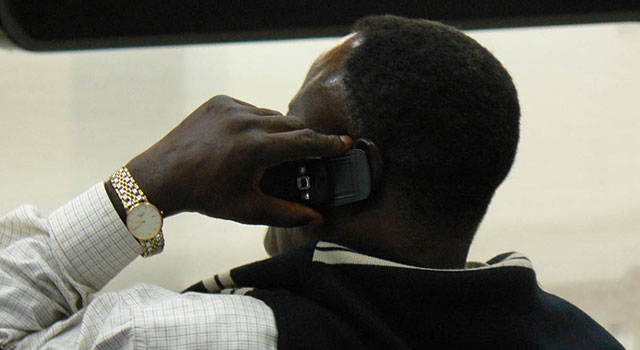
South Africa, where 80% of the adult population owns a cellphone but the median income is a mere R3 000/month, poses specific challenges to tech companies trying to make inroads into the cellphone market.
For many, the solution has come in the form of apps that allow users to chat at rates cheaper than those offered by local service providers.
Although cellphone-based instant messaging services such as Mxit previously dominated the South African scene, they have made way for more sophisticated communication platforms with selected contacts.
One such newcomer is WeChat, which is currently being punted hard on the local market: if you don’t have the app, you may recognise the name from billboards and TV adverts.
It’s a free “over the top” (OTT) application that was introduced in 2012. It allows users to send written text messages, videos and photos using Internet connectivity at a fraction of the price charged by regular SMS.
It has a captive market in China and is growing exponentially in countries such as the Philippines and Malaysia.
It claims to be the world’s fastest-growing social app and has more than 100m registered accounts.
A recent survey by GlobalWebIndex estimated that its audience grew by a record 379% between the second and fourth quarters last year.
WeChat is owned by China’s Tencent, which in turn is a third owned by Koos Bekker’s local media dynasty Naspers. So its interest in the South African market makes sense.
But the Chinese app is entering a market already dominated by some stiff American competition: WhatsApp. It’s believed that more than half of all adult South Africans living in towns and cities have downloaded WhatsApp, the world’s most popular OTT app, but it recorded a revenue of only US$20m last year and has a mere 55 employees.
Facebook, which recently took over the company, essentially paid R460 for every one of WhatsApp’s 450m users to make up the hefty R208bn bill.
But WhatsApp’s founder, Jan Koum, has insisted on a very particular revenue model, and that strictly excludes making cash through advertising.
WhatsApp has made all its revenue from subscription fees. People use the app for the first year free of charge; thereafter, they are (in theory) billed $0,99 annually, although thousands of users say they have used it for several years and never paid a cent.
But Koum is optimistic it will be worth its weight in subscription fees alone, with one million new users signing up every month.
On the other side of the coin, WeChat hopes to carve out its market share in price-sensitive South Africa by keeping its app free.
It makes its money through add-ons and innovative sales structures. According to The Economist, about 85% of the money Tencent will make from the app this year will come from selling games. It also sells stickers, gaming avatars and add-on services.
In its home market, even some vending machines now sport a WeChat-compatible bar code for each item. Users can scan and pay for a packet of chips simply by opening WeChat, or Weixin, as it is known in China.
But the question is how well these functions will translate into the South African environment, and what the appetite of the cash-strapped South African consumer will be for the add-ons?
“Currently we do not share individual territory numbers, but we are pleased with the progress we have made [in South Africa],” said Brett Loubser, MD of WeChat Africa.
Many of the standard functions found on the app overseas are available locally.
Its “brand-owned” channels, known as “official accounts” are also available on South African soil, he said.
“In 2014, we are working hard to deliver platform services in South Africa to further strengthen our differentiated position,” he said.
“Our first successful step in this regard has been delivering a highly active second screen experience for Big Brother Mzansi together with DStv. We built a message to screen, voting and polling environment for the show in a matter of weeks.”
Whether innovations like these will help to conquer the already entrenched subscription-based model remains to be seen.
But the “over the top” battle is likely to yield cheaper prices and more inventive offerings for the Mzansi consumer. — (c) 2014 Mail & Guardian
- Visit the Mail & Guardian Online, the smart news source

